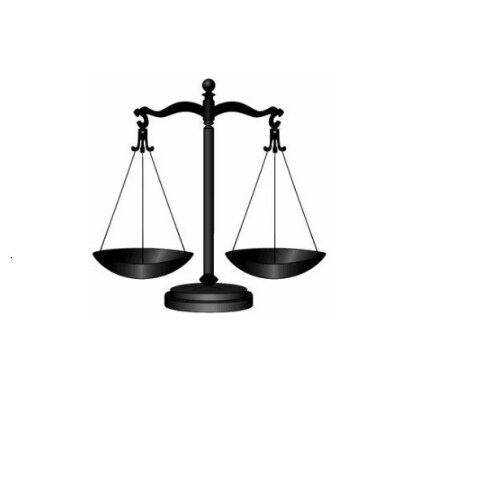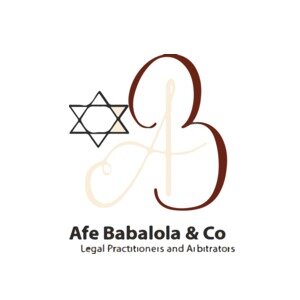Best Child Visitation Lawyers in Port Harcourt
Share your needs with us, get contacted by law firms.
Free. Takes 2 min.
Free Guide to Hiring a Family Lawyer
List of the best lawyers in Port Harcourt, Nigeria
About Child Visitation Law in Port Harcourt, Nigeria:
Child visitation refers to the right of a non-custodial parent or guardian to spend time with a child. In Port Harcourt, Nigeria, child visitation laws are governed by various statutes and regulations. These laws aim to protect the best interests of the child while ensuring that both parents have the opportunity to maintain a meaningful relationship with their child.
Why You May Need a Lawyer:
Seeking legal assistance in child visitation matters is crucial in several situations such as:
- Disagreements between parents regarding visitation schedules
- Concerns about the safety or well-being of the child during visitation
- Violation of visitation orders or refusal to allow visitation
- Modification of existing visitation arrangements
- Drafting or reviewing visitation agreements
Local Laws Overview:
Child visitation in Port Harcourt, Nigeria is primarily governed by the Child Rights Act of 2003. Some key aspects of the law include:
- Both parents have the right to visitation, regardless of marital status.
- Visitation should be in the best interests of the child, taking into consideration factors such as the child's age and emotional well-being.
- Visitation schedules may be agreed upon by the parents or determined by a court in cases of dispute.
- Parents must adhere to visitation orders and failure to comply may result in legal consequences.
Frequently Asked Questions:
1. Can grandparents seek visitation rights in Port Harcourt?
Yes, grandparents may seek visitation rights in Port Harcourt. However, they must demonstrate that it is in the best interests of the child and that denial of visitation would negatively impact the child's welfare.
2. Can visitation orders be modified?
Yes, visitation orders can be modified if there is a significant change in circumstances justifying the modification. It is advisable to seek legal assistance to navigate the modification process successfully.
3. What can I do if the other parent refuses to allow visitation?
If the other parent refuses to allow visitation, you can seek legal intervention. Document instances of refusal and consult a lawyer to help you file a petition with the appropriate court.
4. Can visitation be supervised in certain cases?
Yes, visitation can be supervised if there are concerns about the child's safety or well-being. The court may order supervised visitation to ensure the child's welfare during the visitation period.
5. How long does the visitation process typically take?
The duration of the visitation process varies based on individual circumstances, court availability, and the complexity of the case. It is advisable to consult a lawyer for an accurate assessment of the timeline specific to your situation.
Additional Resources:
For further information and assistance, you may consider contacting the following resources:
- Port Harcourt Family Court
- Legal Aid Council of Nigeria, Port Harcourt
- National Human Rights Commission, Port Harcourt
Next Steps:
If you require legal assistance in child visitation matters in Port Harcourt, Nigeria, it is advisable to:
- Research and shortlist experienced family law attorneys in Port Harcourt.
- Schedule consultations with potential lawyers to discuss your case.
- Provide all relevant information and documents to the lawyer for a thorough evaluation.
- Follow the lawyer's guidance and instructions to proceed with your child visitation case.
Lawzana helps you find the best lawyers and law firms in Port Harcourt through a curated and pre-screened list of qualified legal professionals. Our platform offers rankings and detailed profiles of attorneys and law firms, allowing you to compare based on practice areas, including Child Visitation, experience, and client feedback.
Each profile includes a description of the firm's areas of practice, client reviews, team members and partners, year of establishment, spoken languages, office locations, contact information, social media presence, and any published articles or resources. Most firms on our platform speak English and are experienced in both local and international legal matters.
Get a quote from top-rated law firms in Port Harcourt, Nigeria — quickly, securely, and without unnecessary hassle.
Disclaimer:
The information provided on this page is for general informational purposes only and does not constitute legal advice. While we strive to ensure the accuracy and relevance of the content, legal information may change over time, and interpretations of the law can vary. You should always consult with a qualified legal professional for advice specific to your situation.
We disclaim all liability for actions taken or not taken based on the content of this page. If you believe any information is incorrect or outdated, please contact us, and we will review and update it where appropriate.













